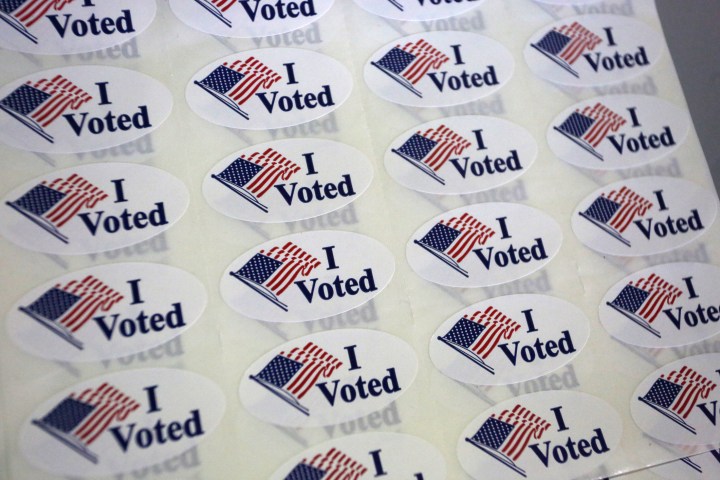
How much do political campaigns know about you? Way more than you might think.
How much do political campaigns know about you? Way more than you might think.

The 2024 federal election cycle is expected to be the most expensive ever, and campaigns will be desperate to get their messages in front of voters early and often. While experts say we should expect more ads in more places, campaigns have access to more data about voters than ever before to help them target those ads.
For decades, the name of the game in political advertising was broadcasting in the technical sense of the word, with wide-scale rollouts of ads designed to appeal to as many people as possible. But more recently, campaigns have been using increasingly detailed data to narrowcast targeted messages to specific groups of potential voters.
Some of this data has been available to campaigns for decades. For example, state voter files can reveal your party affiliation, how often you vote and when you last voted.
“And then credit reporting agencies [and] other financially focused firms also collect and sell information on our spending habits and a range of other commercial behaviors,” said Samuel Woolley, who runs the propaganda research lab at the Center for Media Engagement at the University of Texas at Austin. Woolley said that kind of information can help political campaigns determine whether people own a car or house or how likely they are to buy one.
On top of that existing data, there are new ways to reach voters — which double as ways for campaigns to learn more about us. That can include data about internet browsing habits, which videos people watch online and more detailed information about what they watch on TV.
TV viewership data “might only be available, six years ago, on 10 million households throughout the country. Now you can cobble together TV viewership data on 60-plus million households,” said Jesse Contario, who oversees the political practice at MiQ, a company that helps brands and campaigns target ads on digital platforms. Contario said that for households that opt in to tracking, “we’re able to understand what programming someone’s watching, what channel they’re watching, how many hours a day, are they watching news versus sports, for entertainment content, as well as understanding down to the household level what campaign ads they’ve been exposed to and what competitor ads they might be exposed to as well.”
All of those streams can be coalesced in massive data sets that campaigns, just like traditional advertisers, can purchase.
“What we’re seeing now is that there are companies out there selling access to much more data to campaigns and political action committees,” said Caitriona Fitzgerald, deputy director at EPIC, the Electronic Privacy Information Center. “Those companies are either purchasing this data from data brokers or sometimes they gather location data themselves. And that’s in order to kind of build a profile on each voter. … These dossiers can include hundreds or even thousands of data points about us, including our religious beliefs … or even inferences about us based on what our friends are reading or where they’re going.”
Fitzgerald said those dossiers help campaigns know who to target with ads and where to place those messages.
“They can identify individual voters and say, you know, close to Election Day, make sure that that voter gets targeted with an ad to go vote or an ad slamming their opponent,” she said. “That means that a lot of the advertising you’re going to see in this next election cycle is going to be targeted towards the groups that you belong to, the place that you live and potentially even you yourself as an individual.”
Woolley at UT Austin warned that new artificial intelligence tools available to campaigns in this cycle will parse all this data faster and enable campaigns to quickly generate ads uniquely tailored to individual voters.
“It is microtargeted,” said EPIC’s Fitzgerald. “It’s no longer the case that it’s just like every voter in Missouri is seeing the same ad. You are being chosen for that ad based on all the data about you. And your friends aren’t seeing the same information. So any conversations you’re having about politics, you’re not always getting the same information.”
Which, in an already polarized society, might make it even harder to find common ground.
There’s a lot happening in the world. Through it all, Marketplace is here for you.
You rely on Marketplace to break down the world’s events and tell you how it affects you in a fact-based, approachable way. We rely on your financial support to keep making that possible.
Your donation today powers the independent journalism that you rely on. For just $5/month, you can help sustain Marketplace so we can keep reporting on the things that matter to you.












